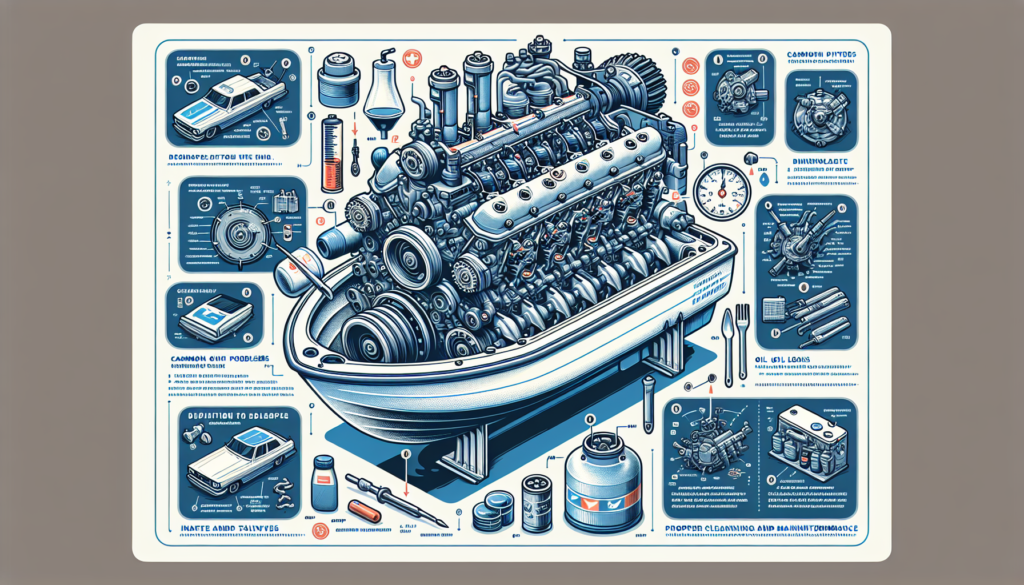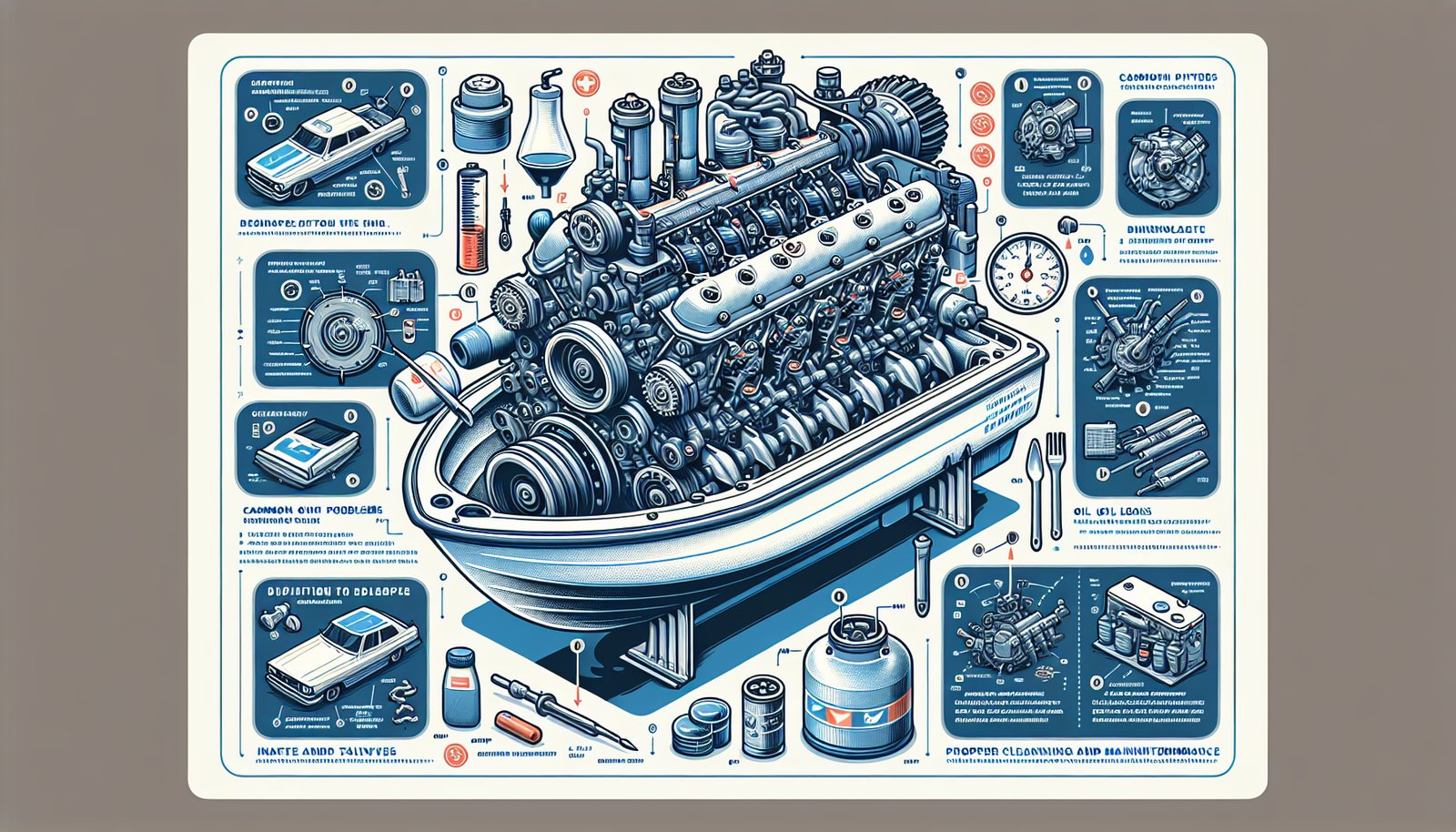Embarking on your new adventure as a boat owner evokes a feeling of unmatched excitement. But alongside this sheer joy, you might find yourself tangled in the web of technical glitches, especially concerning the boat engine. ‘Beginner’s Guide To Boat Engine Troubleshooting’ equips you with all the essential knowledge you need to navigate through these technicalities. This article holds your hand through the process, providing key insight into common engine concerns and their solutions. Let it serve as your reliable compass, directing you towards smooth and uninterrupted sailing experiences.

Understanding the basics of a Boat Engine
Boating is one of the most fulfilling and exciting recreational activities you can enjoy. Just as a car enthusiasts would seek to understand their vehicle’s engines, as a boat owner, it is crucial to grasp the basics of your boat engine. Knowing its workings can vastly improve your experience on the water and rescue you from potential boat trouble brewing beneath the deck.
Components of a Boat Engine
A boat engine is much like a car engine with a number of key components. These include the fuel system to power it, the ignition system that sparks the fuel-air mixture, and the cooling system to keep the engine from overheating as it roars. Additionally, each boat engine also has an exhaust system to expunge gases, an oil system for lubrication, and a gear system to channel power to the propeller.
Different Types of Boat Engines
Three main types of boat engines exist. Outboard motors sit on the stern and include an engine, propeller, and steering control. Inboard motors resides within the boat. A stern drive engine, or inboard-outboard, is a hybrid of the two. Each type of engine has its unique maintenance needs and possible issues.
How Boat Engines Work
At the heart of a boat engine’s functionality is the internal combustion process. The ignition system lights a fuel-air mixture which causes a small explosion. This explosion pushes a piston, which then turns the crankshaft. As a result, the gear system enables the propeller to spin and move the boat forward.
Common Problems in Boat Engines
Like any machine, boat engines are not immune to problems. Some issues can be guiding indicators of the trouble brewing inside the engine. If not addressed promptly, they can increase in severity and lead to engine failure.
Overheating
If your engine overheats, it could lead to profound and often expensive damage. Always keep an eye on your engine temperature gauge. Overheating typically results from a faulty cooling system.
Engine Won’t Start
There are few things more frustrating than a boat engine that refuses to start. Common culprits include a dead battery, a failed fuel system, or faulty starter motor.
Low Power
If your boat engine is struggling for power, it is likely due to a clogged fuel line, malfunctioning pistons, valves, or crankshaft.
Exhaust and Fuel Leaks
Exhaust leaks can launch poisonous carbon monoxide into your boat’s cabin. This makes it a lethal issue while fuel leaks can cause fires.
Preventive Measures to Avoid Engine Problems
Routine maintenance is the best defence against engine trouble. Don’t wait till an issue escalates to address it.
Regular Servicing and Maintenance
Scheduled servicing and maintenance, such as checking oil levels, flushing the engine after every use, and replacing old parts can save you from potential trouble.
Using Correct Fuel & Lubricants
The engine’s health depends on the quality of the fuel and the lubricants you use. Always use recommended products to prevent impurities from damaging the engine.
Proper Understanding and Usage of the Boat Engine
Knowing how your engine works helps you pick up on irregularities sooner. For example, strange noises and vibrations might signal a need for service.

Diagnosing Boat Engine Problems
You may not be a mechanic, however, with some knowledge, you can diagnose common engine problems.
Symptoms of Boat Engine Problems
Keeping an eye and ear on your boat can alert you to common problems. Changes in engine noise, overheating, unusual fuel consumption or loss of engine power could indicate issues.
Problem based Diagnosis
Based on the symptoms, you can initiate a problem based diagnosis. For instance, if your boat is losing power, a likely culprit is the fuel system.
Boat Engine Overheating Troubleshooting
Encountering an overheating engine? Some quick checks might save unnecessary damage.
Checking the Coolant
Begin by checking the coolant level. A low expert may not be cooling the engine sufficiently.
Possible Blockage in the Cooling System
A blockage in the cooling system, often due to debris or buildup, can cause overheating. Cleaning your cooling system can rectify this.
Problems with the Water Pump
If the above checks don’t fix the problem, inspect your water pump. The impeller may fail or wear out causing overheating.
Issues with Thermostat
The thermostat controls coolant flow. If it malfunctions, it can disrupt the cooling mechanism, causing your engine to overheat.
Troubleshooting Boat Engine Starting Issues
A non-starting engine is frustrating but before calling for help, try some checks.
Checking Battery and Connections
First, check the battery and its connections. If your connections are corroded or your battery is dead, your engine may not start.
Ensuring Starter Motor Functionality
If the battery is working fine, look at the starter motor. A silent starter, in spite of a turn the key, usually indicates a fault.
Inspecting the Ignition Switches
A faulty ignition switch can lead to startup issues. Check its functionality using a multimeter.
Understanding the role of Spark Plugs in Engine Start
Lastly, inspect the spark plugs. A damaged spark plug can disrupt the combustion process leading to start-up issues.
Dealing with Low Power Issues
A boat engine lacking power frustrates the trip. Troubleshoot such issue by following steps:
Checking Fuel Filter
A dirty fuel filter can affect engine power. Check and clean the filter to improve power.
Understanding Fuel Line Issues
A clogged fuel line also greatly reduces power. Make sure your fuel line is clear of debris and replacing it if needed.
Inspecting the Pistons and Valves
A problem in the pistons or valves can also result in power loss. Here, professional help may be needed.
Addressing Exhaust and Fuel Leaks
Leakage issues should be addressed immediately to prevent serious damages.
Understanding the Causes of Exhaust Leaks
Exhaust leaks often result from a faulty exhaust manifold. Repair or replace a damaged manifold promptly.
Detecting and Sealing Fuel Leaks
Fuel leaks are usually visible from outside the boat or signaled by a strong petrol smell. Immediate repair is needed to prevent a fire risk.
Professional Help vs. DIY
Boat engine issues can often be resolved with some basic troubleshooting but situations may demand professional help.
When to Call a Professional
For complex issues or upon failure of initial troubleshooting, call a professional to avoid causing further damage.
Potential Risks of DIY Troubleshooting
While DIY might save you money, wrong handling can escalate existing problems or create new ones.
Regular Maintenance and Servicing of Boat Engine
Few things can extend the life of your boat engine like regular maintenance.
Importance of Regular Maintenance
Regular maintenance keeps your engine in top shape, prevents problems, and ensures safety.
Maintenance Schedule and Checklist
Having a maintenance schedule and checklist can help keep track of necessary checks and replacements.
Professional Maintenance Services
While some tasks can be handled independently, for comprehensive servicing, professional services are recommended.
This beginners guide serves to equip you with basic engine knowledge and troubleshooting for common issues. Now, hit the waters with greater confidence. Remember – regular maintenance is key to a happy boating experience!

